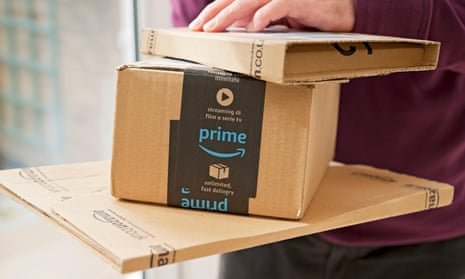More than 1m British households may have been targeted by a scam in which sellers on Amazon Marketplace send unsolicited packages to addresses in order to artificially increase their sales numbers, according to research.
The technique, known as “brushing”, involves sending items that are usually cheap to ship to unsuspecting people and logging them as genuine sales to increase a seller’s sales statistics. The aim is to appear as highly ranked as possible in Amazon’s search system, which prioritises those with high volumes and good reviews.
A survey by Which?, which spoke to 1,839 people across the UK, found that 4% of people said a member of their household had received a package they did not order and was not sent by a known person or held for a neighbour.
On a national scale, the consumer organisation predicts this could indicate as many as 1.1m households may have been targeted.
The Amazon Marketplace sellers are often based in China, reports Which?. Among the items received are magnetic eyelashes, pet and children’s toys, eyelash serum, iPhone cases, Frisbees and medical gloves.
One woman said she had received more than 50 unordered items between last October and May this year. Teresa Martin, a retired teacher from Swindon, said she doesn’t shop on Amazon and reported the delivery to the firm, which didn’t seem “bothered at all”. She took the items to a charity shop.
Amazon sellers are banned from sending unsolicited packages. The company, which last year said it spent more than $700m on fighting fraud and abuse, advises people to report such packages to their customer services team.
But David Li, the director of Shenzhen Open Innovation Lab, an e-commerce expert in China, told Which? that brushing is widely used and viewed by some sellers as “a cost of doing business”. “The competition is intensive in cross-border e-commerce,” he said.
An Amazon spokesperson said: “Orchestrated by bad actors who procure names and addresses from various external sources, ‘brushing’ is a scheme affecting all online marketplaces. We estimate that less than 0.001% of Amazon orders are impacted by brushing as Amazon has robust processes in place to prevent abuse from impacting our reviews, search rankings and other customer experiences.
“We will never stop improving the sophistication of abuse prevention in our store, and we will continue to take the appropriate enforcement actions, including support for law enforcement organisations in their efforts to hold bad actors accountable. We strongly encourage those who have received unsolicited packages to report them to our customer services team so that we can investigate fully and take the appropriate actions.”









